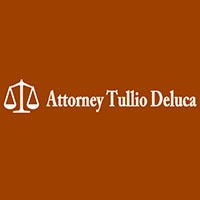Susquehanna Reorganization Lawyer, Pennsylvania
Not enough matches for Susquehanna Reorganization lawyer.
Below are all Susquehanna Bankruptcy & Debt lawyers.
Tullio DeLuca
✓ VERIFIEDBankruptcy & Debt, Accident & Injury, Divorce & Family Law, Employment, Estate
Tullio DeLuca was admitted to bar in 1990 in Pennsylvania, US District Court, Middle, Eastern and Western Districts of Pennsylvania. Attorney DeLuca r... (more)
Molly Dempsey Clark
Election & Political, Family Law, Business Organization, Collection
Status: In Good Standing
Anne Marie Howells
Divorce & Family Law, Criminal, Bankruptcy, Bankruptcy & Debt
Status: In Good Standing Licensed: 25 Years
Carlo Sabatini
Bankruptcy, Collection, Credit & Debt, Employment
Status: In Good Standing Licensed: 25 Years
David K. Brown
Estate Administration, Estate Planning, Corporate, Bankruptcy
Status: In Good Standing Licensed: 44 Years
Paul Philip Ackourey
Litigation, Workers' Compensation, Criminal, Consumer Bankruptcy, Bankruptcy & Debt
Status: In Good Standing
Paul Philip Ackourey
Workers' Compensation, Juvenile Law, DUI-DWI, Bankruptcy
Status: In Good Standing
FREE CONSULTATION
CONTACTRaymond William Ferrario
Lawsuit & Dispute, Estate, Divorce & Family Law, Bankruptcy, Bankruptcy & Debt
Status: In Good Standing Licensed: 43 Years


